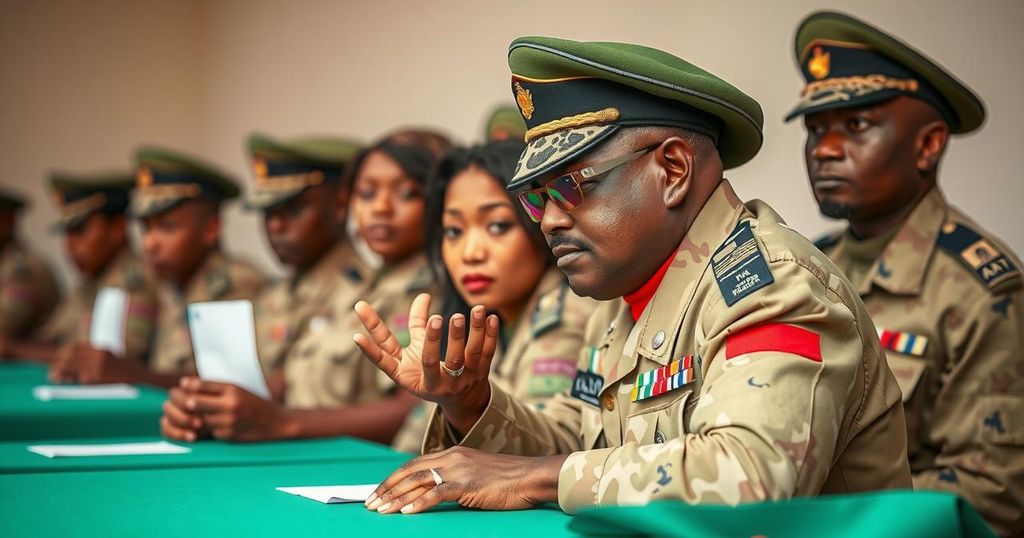Chad Votes in Key Election Amidst Opposition Boycott and Public Apathy

Chad conducted a general election amidst calls for a boycott from opposition parties, resulting in a low voter turnout of approximately 38 percent. President Mahamat Idriss Deby Itno promoted the election as a vital step towards ending military rule, while opposition leaders questioned the election’s legitimacy, urging voters to abstain. Amidst violence and economic struggles, the government emphasizes the election’s importance for Chad’s democratic transition.
Chad held a general election on Sunday, which the authorities claim marks a significant progress towards the restoration of democratic governance following three years of military rule. Initial reports indicated a turnout of merely 38 percent, as numerous opposition factions encouraged citizens to boycott the electoral process. The opposition leader, Succes Masra of the Transformers party, asserted that the majority of voters opted to remain at home, further complicating the election landscape, which may favor candidates loyal to President Mahamat Idriss Deby Itno.
In a bid to galvanize participation, President Deby urged citizens via social media to vote, framing the event as historic. Many citizens, however, expressed skepticism regarding the integrity of the election process, which they believe has been preordained. Anonymously, some individuals shared sentiments of disillusionment, perceiving the voting initiative as meaningless due to a lack of genuine electoral choices. Meanwhile, the military and nomadic communities reportedly saw higher turnout rates of over 72 percent and 54 percent, respectively, being able to vote a day early to accommodate logistical challenges.
Despite the inherent challenges, including violence stemming from Boko Haram in the region and deteriorating conditions exacerbated by climate change affecting agricultural communities, the government positions these elections as critical to democratic transition. Scrutiny of the election process continues, with reports of missing ballots and accusations against the ruling party of election manipulation. Approximately 100 foreign observers monitored polling stations, underscoring the significance of transparency in this critical election that potentially shapes Chad’s future governance.
The recent election in Chad is a pivotal event in the nation’s transition from military to democratic rule after a lengthy period of military governance following the death of former President Idriss Deby. The backdrop involves significant political tensions, with multiple opposition parties rallying against the electoral process, alleging pre-planned outcomes. The dire economic conditions and ongoing conflicts further complicate the electoral environment, illustrating the multifaceted issues affecting the political landscape in Chad. The international community’s involvement through observation efforts underscores the importance of credible elections in promoting democracy in the region.
In summary, the general election in Chad unfolds amid significant political tension and public apathy as articulated by opposition leaders and ordinary citizens. The low turnout suggests a lack of confidence in the electoral process, which many believe does not provide genuine choices. Yet, the government frames these elections as a critical step in the transition to democracy, highlighting the complex interplay of political, social, and economic factors impacting Chad’s future.
Original Source: www.kpvi.com






